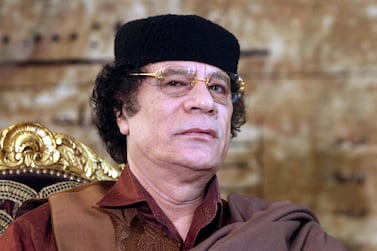The prime suspect in the murder of a British policewoman outside the Libyan embassy in London is due to answer questions over her death after being served with a high court writ.
Yvonne Fletcher, 25, was murdered as she policed an anti-Gaddafi protest outside the embassy in 1984 by gunshots fired from inside.
Her former colleague John Murray, who was by her side on the day of the tragedy and cradled her as she lay critically injured, has “successfully” served papers on one of the suspects following a crowdfunding campaign.
Dr Saleh Ibrahim Mabrouk, who was a close aide to Libya's former dictator Muammar Gaddafi, is due to submit his defence to the allegations in the next few weeks.
Mr Murray has brought the civil action after a UK prosecution case against Dr Mabrouk was dropped two years ago on the grounds of national security.
He has raised more than £13,700 to help pay for legal fees in a bid to get justice for his colleague.
“Since we launched, I'm pleased to be able to inform you now that service of legal papers has been successfully carried out on the suspect in Yvonne’s murder, Saleh Ibrahim Mabrouk, and that his defence is due to be filed by 15 July 2019,” he said.
“With the support of the British public, after all this time, we hope there’ll finally be justice for Yvonne.”
The officer was killed and 10 others were injured when a sub-machine gun and pistol were fired at demonstrators from inside the embassy.
Her death triggered an 11-day siege of the embassy.
Dr Mabrouk, a former education minister under Gaddafi, was one of 11 diplomats in the embassy on the day and was deported from the UK as a result.
Following the downfall of Gaddafi in 2011, he was granted asylum and returned to the UK where he has been living in a £600,000 five-bedroomed home in Reading.
He returned to university and studied for a PhD.
His return to Britain was part of a Foreign Office initiative to improve Anglo-Libyan relations.
Despite his arrest in 2015 on suspicion of conspiracy to commit murder it was later dropped.
Mr Murray, from London, previously told the Sun newspaper: “While there’s never been a suggestion he pulled the trigger, he certainly knows who did.”
However, a confidential review in 2007 suggested the shooting and murder were both pre-arranged and Dr Mabrouk was identified as, potentially, the ringleader.
Depending upon the answers generated by the civil action British authorities may be forced to reconsider criminal proceedings.
The case papers are being filed at London’s high court at the Royal Courts of Justice.
It is not the only case concerning Libya being pursued.
Other British families are still seeking compensation from Libya for their loved ones who were injured and killed by IRA Semtex bombs supplied by Gaddafi.
In 2008 Gaddafi agreed a settlement to compensate US victims of Libyan-sponsored terrorism, they received $10 million for each death and $3 million for each injured person.
France and Germany also agreed deals but British victims have never been compensated.
It comes as the British government has earned more than £17m in tax on the £12bn of Libyan assets which are presently frozen in the UK but the victims have still received nothing.
Human rights lawyer Jason McCue described it as a "disgrace".
"The position of successive UK governments is disgraceful and untenable since we began this campaign for justice and compensation for victims of Libyan sponsored IRA Semtex Bombings," he told the National.
Bombings carried out using Semtex explosives supplied by his regime included an attack outside Harrods in 1983.
Three police officers and three civilians were killed and more than 73 people were injured in the car bombing in London.







